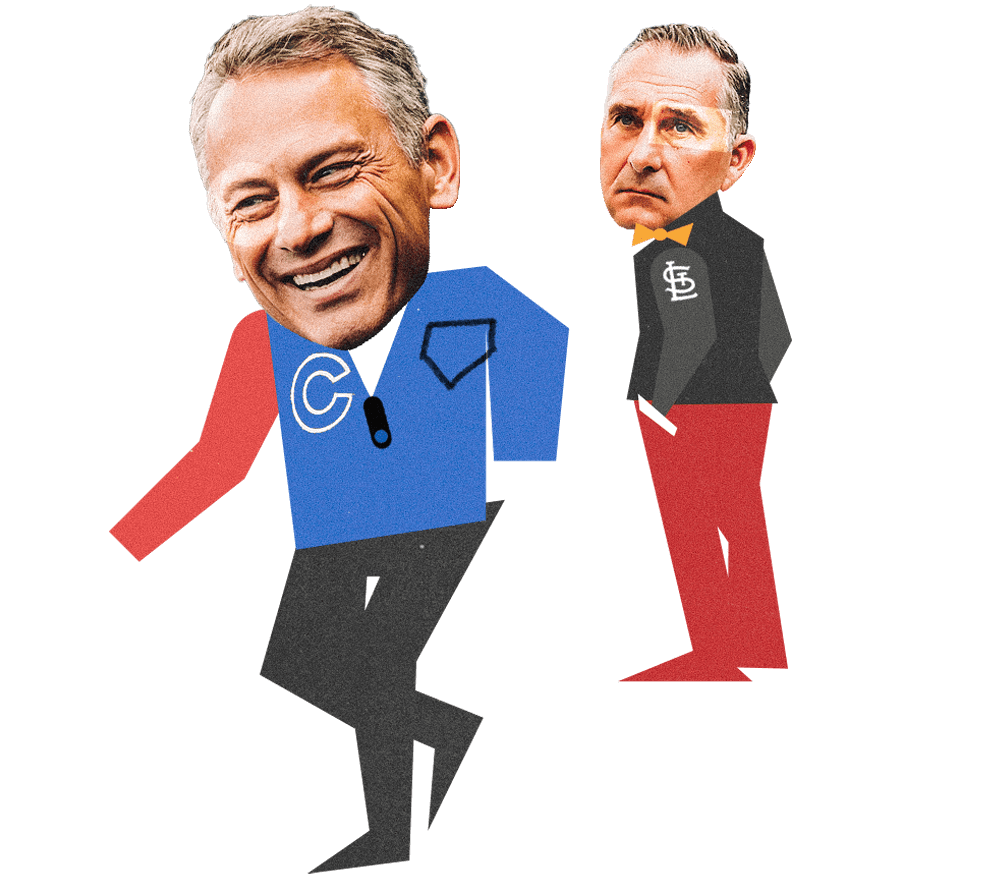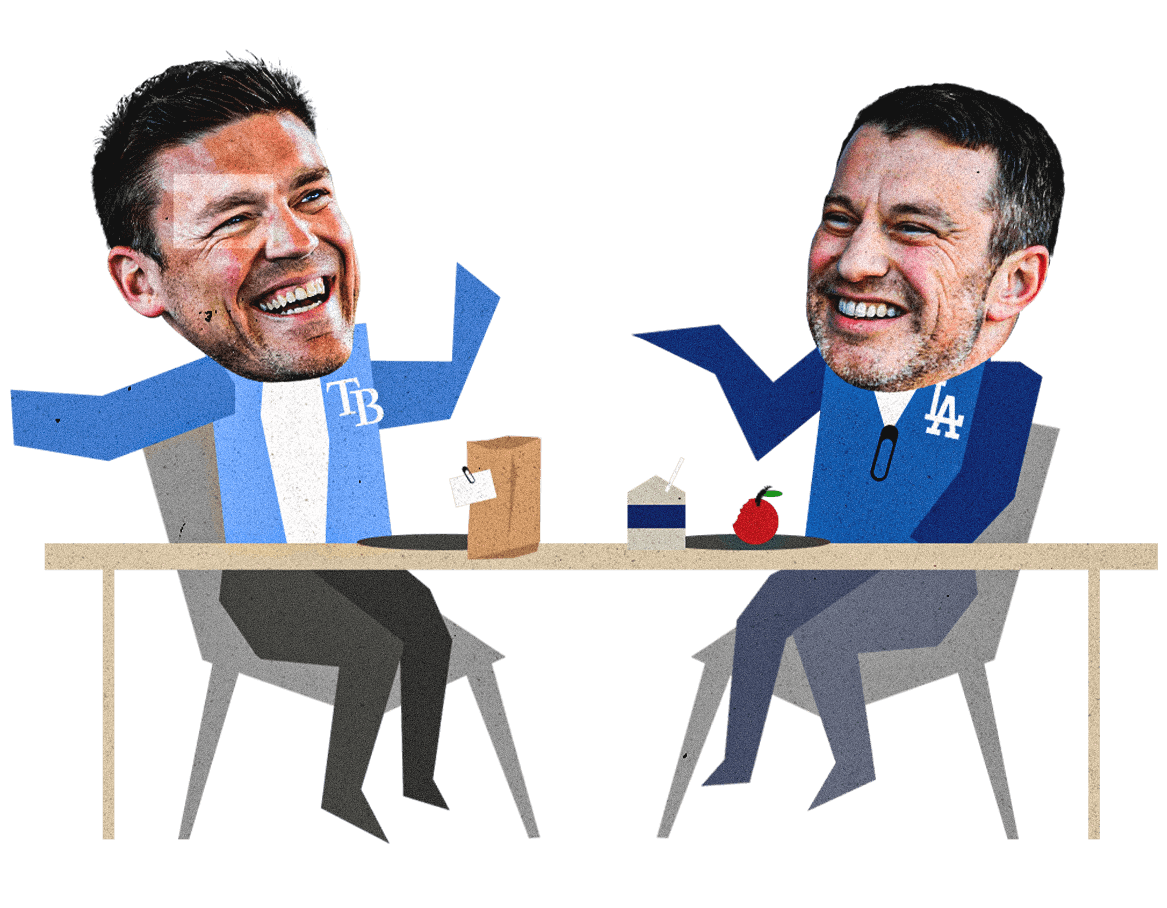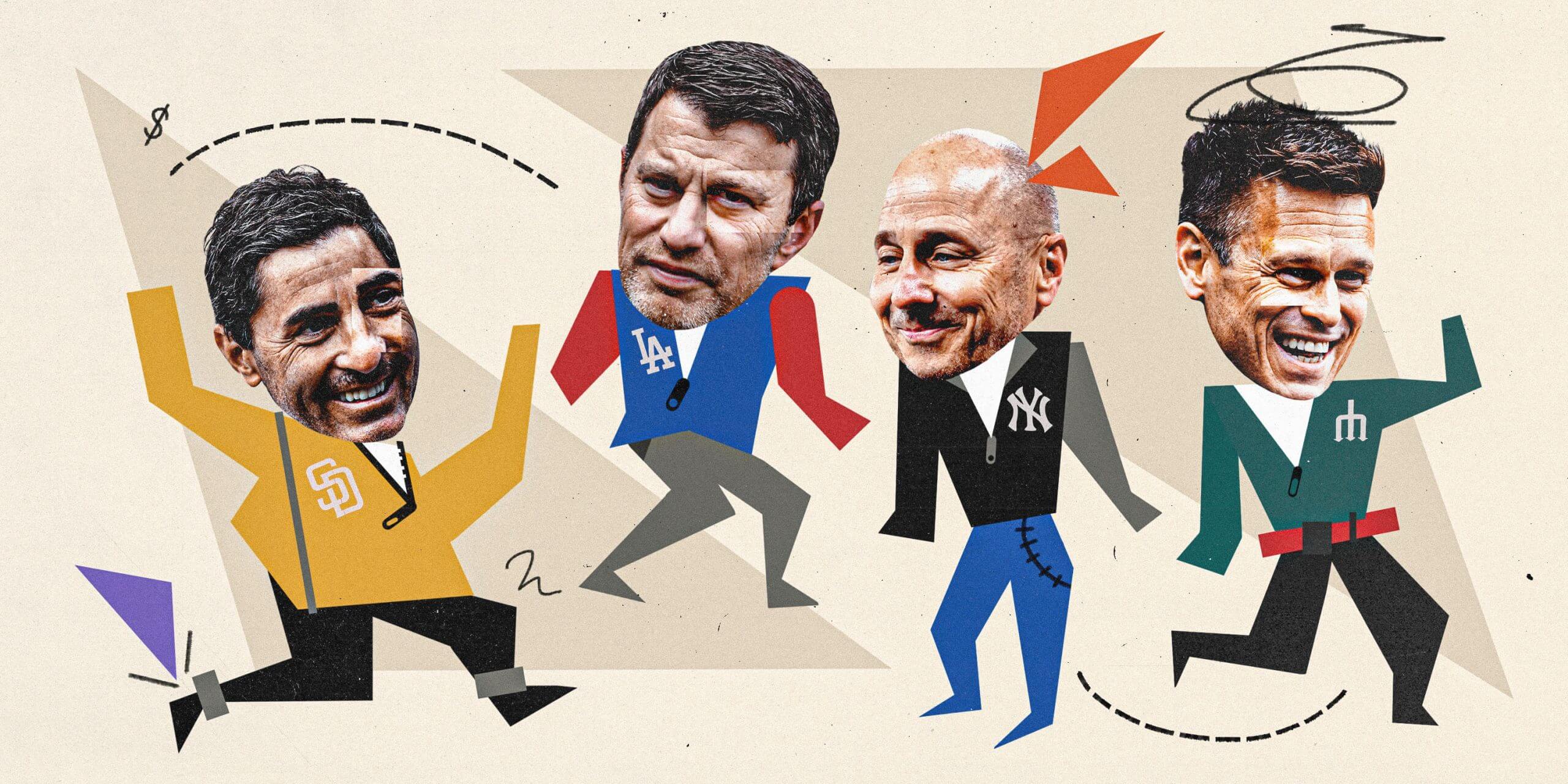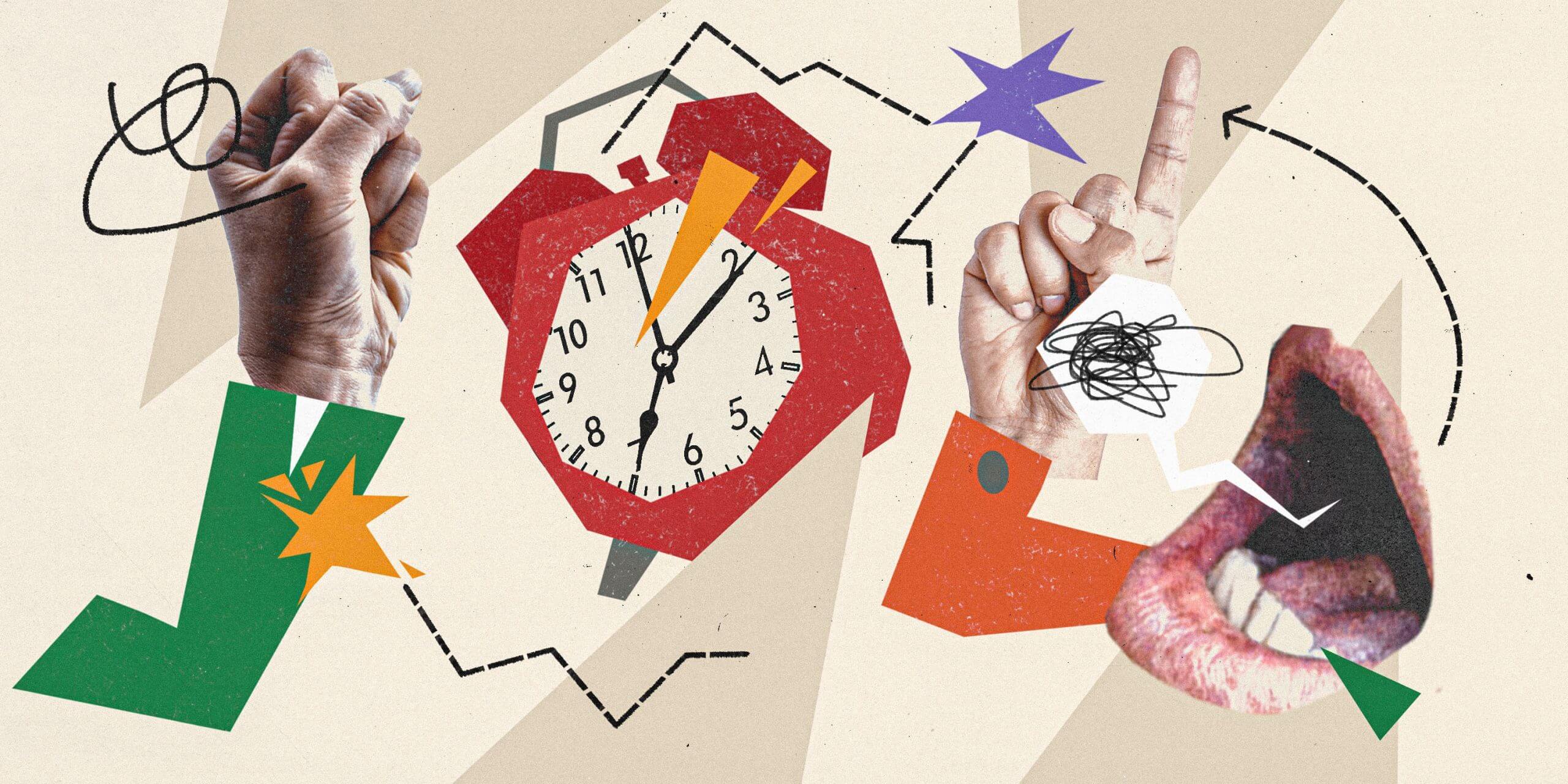This is the third in a three-part series exploring how the personalities of MLB executives impact baseball’s trade deadline. Part one examined the various styles of traders. Part two looked at the do’s and don’ts of deadline trading. Ad blockers may interfere with the interactive graphics. The Athletic has live coverage of the 2025 MLB trade deadline.
The San Diego Padres and Cleveland Guardians completed a trade in July 2018, another in November 2018, two in July 2019 and one in August 2020. Each front office knew the other’s major-league roster and farm system intimately, and the executives on both sides knew how the others operated.
They once conducted business on the phone while Guardians president Chris Antonetti was on the platform of a zip line course in southern Ohio. Padres president A.J. Preller, a single 48-year-old with a penchant for swinging deals, has called Antonetti at 2 a.m. in an effort to push conversations forward.
“Sometimes I just won’t take it,” Antonetti said.
Familiarity has bred activity between the organizations and that can be an advantage at this time of year, when time is precious and the deadline is lurking.
The Padres are one of the busier teams in the league. They’ll make deals with just about anyone. The Guardians are, well, more guarded.
There are many factors to explain why two particular teams unite on the dance floor, from executive friendships to teams’ competitive cycles. There are also reasons ranging from geography to historic rivalries why two particular teams don’t often strike a deal — and, in some cases, almost never have.
So, who trades with whom?
(Data compiled using Baseball-Reference’s trade history function, ranging from the start of the 2019-20 offseason until July 1, 2025, unless otherwise noted. Only trades involving at least one big-leaguer and a player on each side were included.)
Some front offices are notoriously hyperactive (Mariners, Rays, Padres). Others’ phones collect dust (Rockies, Nationals, Cardinals, Tigers). The Rays and Brewers, the two most active teams over the last five years, swung a trade this week involving catcher Danny Jansen.
Since the 2019-20 offseason, Tampa has made 76 deals, 18 more than any other team and 60 more than the Nationals. Ten of them are with the Mariners. It’s no surprise, then, that the Nationals are one of only two teams with whom the Rays haven’t made a trade in that stretch. (The Blue Jays, their division rival, are the other.)
Braves president Alex Anthopoulos likes to wheel and deal. Since the start of the 2019-20 offseason, they’ve completed six trades each with the Royals and Angels. That’s twice as many trades as the Angels have made with anyone else. That’s a testament to the personal connections between Anthopoulos and Angels GM Perry Minasian, a former Braves front office member, but it also speaks to the states of the two teams: The Braves have mostly contended in that timespan, while the Royals and Angels have not.
“You’re looking for a mismatch of some sort,” said Cleveland GM Mike Chernoff.
On the other end of the activity spectrum lie the Nationals, with a mere 16 trades in the last five years. They last made a deal with the Tigers in 2013 (Doug Fister). They last made a deal with the Astros in 2007 (Danny Ardoin). They last made a deal with the Giants in 2006 (Mike Stanton).
The Rockies and Nationals, two of the least active clubs on the trade front, haven’t made a transaction of any kind since 2009. That’s not surprising; the Rockies haven’t made any deals with 16 of the league’s 30 teams in the last five years.
What makes teams into frequent trading partners? For some executives, it boils down to a few questions. Who do you know? Who can you trust? Who isn’t going to waste your time? Who have you worked with in the past, and whose roster and farm system do you know intimately?
“If you have good relationships,” said Mariners president Jerry Dipoto, “you can say something, you can ask something, and the other person isn’t going to be off-put by the inquiry.”
The Rays and Dodgers have consummated more deals than any other pairing of teams over the last five years. That’s no coincidence, given Dodgers president Andrew Friedman launched his career in the Rays’ front office. Eleven days after Peter Bendix left the Rays’ front office to take over the Marlins in November 2023, he completed a trade with his old club.
“I think it’s significantly easier, in part because you’re not worried about the person being dishonest,” Friedman said.
Former Rays executives are spread throughout the league, including Friedman, Bendix, Matt Arnold (Brewers) and Chaim Bloom (Cardinals).
“You know each other well enough that it’s especially important that you don’t bulls—,” said Rays president Erik Neander. “I think it helps. A lot of us grew up around one another. And my thoughts on running a team are heavily influenced and educated by those people. … Maybe your evaluations of players might be a little more aligned than what’s typical. But you still can have differences in your competitive circumstances.”
Familiarity doesn’t always lead to deals, though. DiPoto used to be the Angels’ boss, and now the Mariners conduct business with just about every team but the Angels.
“I never made a deal with Billy (Eppler, former GM of the Angels and Mets), because we thought alike,” said Yankees GM Brian Cashman, who worked with Eppler on the Yankees. “Usually, contrasting philosophies help make deals better.”
Cleveland’s brass has a reputation for being painfully stingy, and so the executives who leave the Guardians for more prominent roles are sometimes, by nature, stingy themselves. Derek Falvey left Cleveland after the 2016 season to preside over the Twins’ operations, and the only deal those clubs have struck since is Ian Hamilton-for-Sandy León in 2022.
Conversely, Mark Shapiro left Cleveland to take over in Toronto after the 2015 season, and he brought fellow Cleveland disciple Ross Atkins with him, and the Guardians and Blue Jays have regularly struck deals.
The Royals and Rangers found it simple to nail down the terms on a Cole Ragans-for-Aroldis Chapman trade in June 2023, thanks to a working relationship between Texas president Chris Young and Kansas City executive J.J. Picollo. Young spent the last three seasons of his pitching career with the Royals.
“We could just have very direct dialogue,” Young said, “where we knew whatever said to each other was not going to be filed away and held against us in the next deal.”
Erik Neander, president of baseball operations for the Rays and Andrew Friedman, president of baseball ops for the Dodgers. (Mike Carlson via MLB Photos, Brian Rothmuller via Icon Sportswire / Getty Images)
Meanwhile, the battle for supremacy in a certain region can create natural rivalries and reasons to avoid engaging.
The Baltimore Orioles and Washington Nationals, for instance, haven’t made a trade since the Nationals were the Montreal Expos. Montreal sent Tim Raines to Baltimore to play with his son for the 2002 season. But the last player-for-player deal they completed? Ryan Minor for Jorge Julio in December 2000.
The Athletics and San Francisco Giants have worked out a couple of small deals in the last couple years, but they once went more than three decades — from 1990 to 2023 — without executing a trade. The deal that sent José Quintana from the south side to the north side of Chicago in 2017 snapped an 11-year trade drought between the White Sox and Cubs.
The New York Yankees and New York Mets swapped relievers Mike Stanton and Felix Heredia in December 2004 and then didn’t link up again until 2022. The Los Angeles Angels and Los Angeles Dodgers haven’t swung a trade since 2014, the Texas Rangers and Houston Astros since 2015.
Geography is one thing. Institutional dislike of another franchise? Well, that builds its own barrier.

Jed Hoyer, President of baseball operations for the Cubs and John Mozeliak, outgoing baseball operations president for the Cardinals. (Brian Cassella via Chicago Tribune, Rich Graessle vis Icon Sportswire / Getty Images)
The rival Cubs and St. Louis Cardinals haven’t collaborated on any type of transaction since 2007, and they haven’t made a trade since 2002, when the Cubs flipped pitcher Jeff Fassero for a pair of prospects. They worked out a Todd Zeile trade in 1995. That’s it since 1980, when the Cubs sent Hall of Fame pitcher Bruce Sutter to St. Louis.
The Giants and Dodgers haven’t completed a transaction since 2007, but the Yankees and Boston Red Sox have put their differences aside to make four deals since 2021. Before that, their four most recent deals came in 2014, 1997, 1986, and 1992.
There’s a longstanding debate about how difficult it is to trade within one’s division. Do you really want to see your former player torment you 13 times a year? Should it matter if you feel like you’re getting the better end of the exchange? One AL executive said this is where owners sometimes step in and put the kibosh on a deal that would relocate their prospects to a division rival.
“Are there extra hurdles to getting deals done with your division rivals? Of course,” said David Stearns, the Mets’ president of baseball operations. “But it’s certainly not impossible.”
The Marlins and Mets, for instance, have had no trouble working together in recent years, having completed four deals since February 2021. The Brewers and Pirates have struck three times in that timeframe.
The Tigers and Twins worked out a trade Monday that sent pitchers Chris Paddack and Randy Dobnak to Detroit. Reliever Seranthony Dominguez switched clubhouses between games of a double header Tuesday involving the Orioles and Blue Jays after the AL East clubs completed a trade.
That’s not the norm, though. Those two deals pushed the total to 39 in-division trades the last five years, and many division rivals haven’t dealt with one another in decades. The Angels and Mariners, for instance, haven’t swung a trade since they exchanged Kendrys Morales and Jason Vargas in 2012. In fact, that’s one of two trades they have ever made, the other coming in 1979.
It’s similar around the league, with some extremes: In the NL West, only one trade has been completed within the division in the last five years: The Padres traded River Ryan to the Dodgers for Matt Beaty in March 2022. The Rockies and Padres haven’t made a deal since December 2011 (Huston Street). The Rockies and Dodgers haven’t made a deal since December 2014 (Juan Nicasio). The Rockies and Giants haven’t made a deal since July 2012 (Marco Scutaro for Charlie Culberson).
Maybe this says more about the Rockies’ inactivity than anything else. It’s never too late to change, though — the Rockies were one of the first teams to jump into the fray ahead of this deadline. With Ryan McMahon’s relocation to the Bronx, the Rockies and Yankees completed their first deal in six years.
With contributions from The Athletic’s Andy McCullough
Top illustration: Kelsea Petersen / The Athletic; Mike Carlson, Michael Reaves, Andy Cross / Getty Images





